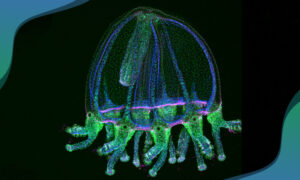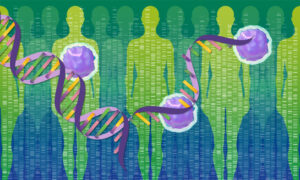Pregnant mice block out unwelcome admirers to protect their pups
Chemical changes in the brain make pregnant mice ignore the smell of males
Mouse mothers-to-be have a remarkable way to protect their unborn pups. Because the smell of a strange male’s urine can cause miscarriage and reactivate the ovulatory cycle, pregnant mice prevent the action of such olfactory stimuli by blocking their smell. Researchers from the European Molecular Biology Laboratory (EMBL) in Monterotondo, Italy, have now revealed the nature of this ability. A surge of the chemical signal dopamine in the main olfactory bulb – one of the key brain areas for olfactory perception – creates a barrier for male odours, they report in the current issue of Nature Neuroscience.
Social odours, such as pheromones, influence many aspects of human and animal behaviour – perhaps the most widely known reproductive behaviour. For example, exposing a newly pregnant mouse to the smell of an alien male’s urine prevents the implantation of her embryos into the uterus and brings her back into the ovulatory cycle. The scent affects pregnancy by inhibiting the release of the pregnancy hormone prolactin. This phenomenon is often called the Bruce effect and creates a mating opportunity for the alien male. It is also beneficial for the female because it avoids infanticide by the strange male after birth. After day 3 of pregnancy, however, the smell of an alien male’s urine no longer affects pregnancy. At this stage the embryos have already been implanted into the uterus and losing them would bear a high cost for the female.
Liliana Minichiello and her team at the EMBL Mouse Biology Unit now discovered the molecular mechanism that underpins this change in sensitivity to male odours.
“At day 3 of the pregnancy a chemical change occurs in the brain of the expectant mother that makes her unable to perceive male odours. This seems to mark a point of no return for the pregnancy,” explains Minichiello.
Following coitus, a progressive surge of the chemical signal dopamine takes place in the main olfactory bulb, the most anterior part of the mouse brain that is dedicated to the processing of odours. The dopamine flood is triggered by the physical stimulation during mating and progressively impairs the perception and discrimination of social odours contained in male urine. Treating pregnant mice with chemicals that block the dopamine receptor D2 abolished the barrier effect, restored odour sensing and favoured pregnancy disruption.
The findings unexpectedly reveal the main olfactory bulb as a key control centre of social and reproductive behaviour. Previous research in this area had focussed almost exclusively on other brain circuits. The main olfactory bulb likely achieves its control through projections to the amygdala and the hypothalamus, those regions of the brain that regulate emotional and reproductive behaviour through the release of hormones.
Dopamine is also found in humans, where it is mostly known for its role as the brain’s ‘reward chemical’ that plays crucial roles in addiction and neurological disorders like Parkinson’s disease, but it is also found in the human olfactory bulb. It is unknown if a process similar to the phenomenon observed in mice takes place in pregnant women.
“As far as we know, human pregnancy is not affected by strange male odours, but it could help explain why many women report changes in olfaction during pregnancy,” says Che Serguera, who carried out the research in Minichiello’s lab.



